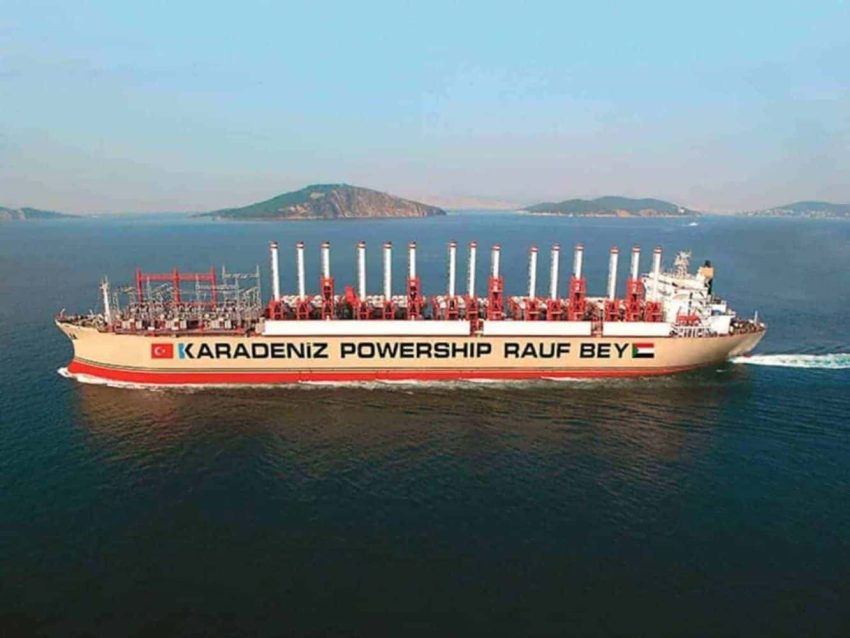South Africa is now finally free of the 20 year, R200 billion shackle in the form of the Karpowerships that would have destroyed our economy.
In the dark days of load shedding when South Africans had more hours of no electricity than hours with electricity, consumers were starting to think that the Karpowerships – that would have cost the country about R200 billion over 20 years – would not be such a bad idea.
Thankfully, load shedding became a thing of the past and government decided to scrap the project where it would have commissioned three Karpowerships to help the country with power and get rid of load shedding.
Many South Africans and civil society organisations were not happy with the decision to supplement South Africa’s electricity grid this way, and the Organisation Undoing Tax Abuse (Outa) asked the courts to overturn the decision. Recently, the high court did just that and issued an order declaring the Karpowership licences invalid and overturned them.
Recently, the Pretoria High Court did just that. It granted outa an order ruling that the three Karpowership electricity generation licences issued are invalid and overturned them.
The National Energy Regulator of South Africa (Nersa) issued the licences that were a crucial step in government’s plan to sign 20-year deals with the floating power stations as “emergency” electricity. The deals were expected to have cost about R200 billion over the 20 years, an amount that would have been added to the price of electricity.
ALSO READ: Karpowership project gets green light, a costly gamble?
Outa’s three year fight against Karpowership and Nersa in 2022
Outa filed its case on 26 April 2022 and called for the court to review Nersa’s decision to grant the licences. It resulted in a three-year fight, including a long dispute over access to documents.
Adv Stephanie Fick, executive director of Outa, says they believe this case contributed significantly to the collapse of the Karpowership deals, as Eskom eventually cancelled the grid access.
The removal of the generation licences is the final end of this deal and Fick says Outa regards this as a significant legal victory and a huge victory for the public.
“The Karpowership deals are now absolutely dead. It will never be loaded onto your electricity bill. This ruling is a powerful affirmation that decisions involving billions in public funds must comply with the law. We challenged this process because the public deserves transparency, proper oversight and value for money, none of which were present in this licensing saga.”
According to the court order, the “decision of the first respondent [Nersa] to award a generation licence to the second respondent [Karpowership]” was “reviewed and set aside” for each of the three generation licences.
The court order also confirmed a settlement agreement between Outa and Nersa. Karpowership was cited in the case and initially opposed it but withdrew a few months ago. As part of the settlement agreement, Nersa agreed to withdraw its opposition to Outa’s review application and the court formally set aside the impugned licences.
In addition, the court ordered Nersa to pay the costs of the application on a party-and-party scale, including fees for two counsel. Fick says this reflects the seriousness of the matter and the substantial public interest involved.
ALSO READ: ‘It’s buried’: Ramokgopa says Karpowership deal ‘dead in the water’
Karpowership had no environmental impact studies or agreements with Eskom
The Karpowership generation licences were issued in 2021 as part of the Risk Mitigation Independent Power Producer Procurement Programme, which aimed to urgently address South Africa’s electricity shortfall.
Outa’s review application cited multiple legal and procedural concerns, including:
- The absence of required environmental authorisations and port approvals;
- The lack of confirmed power purchase agreements with Eskom;
- Criminal investigations pending against the Karpowership entities; and
- Significant long-term financial risks to the public without adequate regulatory scrutiny.
Fick says the case was delayed for nearly two years due to disputes over access to the administrative record. Outa demanded a copy of the full record of Nersa’s decisions, with the full reasons for the decisions, as part of the review process. However, Nersa and Karpowership objected.
After a court order compelling the production of documents in 2024, the Karpowership entities were liquidated and their attorneys withdrew from the matter in June 2025.
Despite the lack of opposition, Outa pushed to ensure the matter was formally adjudicated and made part of the public record through an order of court. The full record was eventually made available, but parts are blocked from public access.
“This is not just a legal win but a win for public interest litigation. This case reinforces the principle that even when government acts urgently, the law and due process cannot be ignored,” Fick said.
“This judgment protects the public from being locked into a flawed and costly energy deal and it strengthens the principle that administrative decisions must be lawful, rational and in the public interest.”
